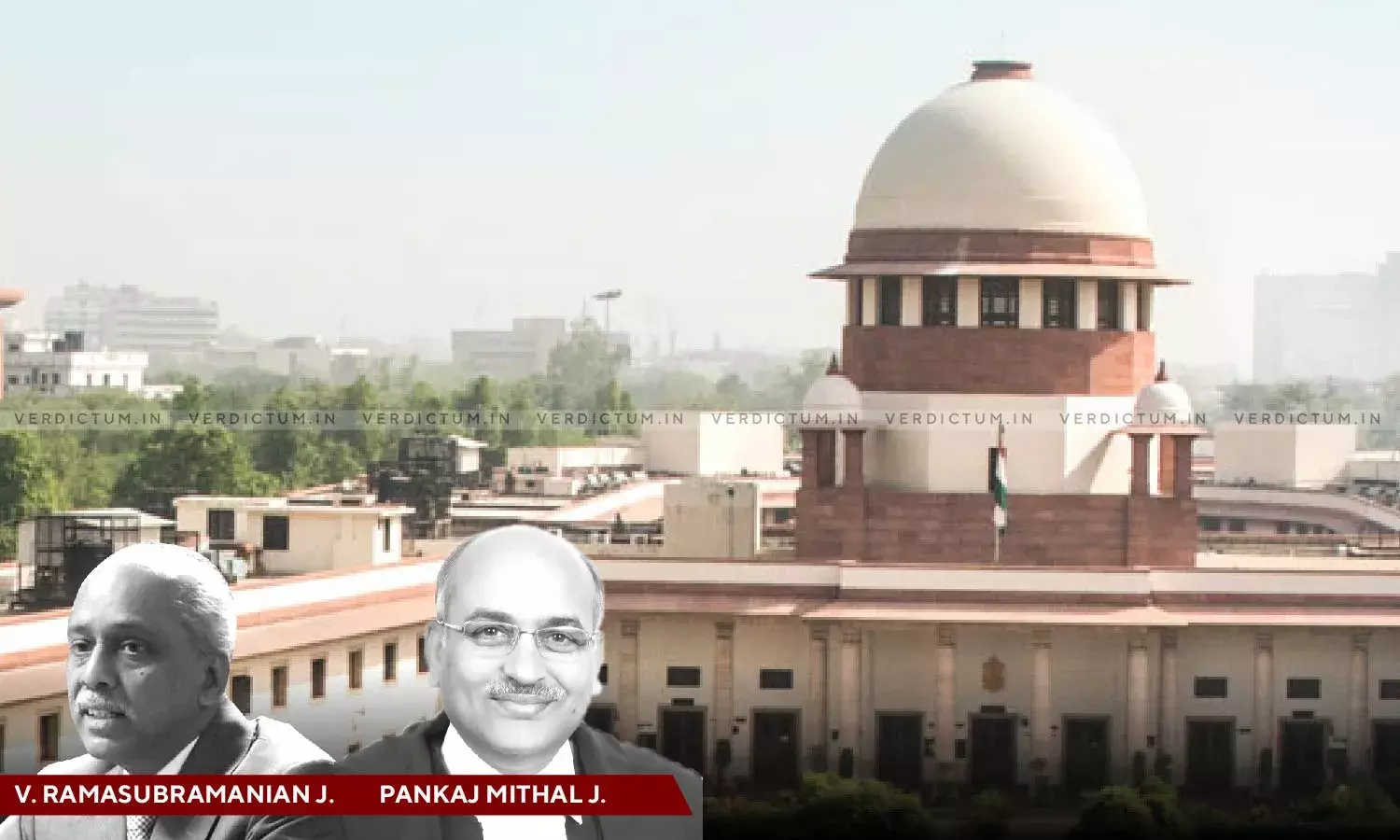Suit Property Cannot Continue As Wakf Irrespective Of Its Use Or Disuse As Burial Ground In Absence Of Evidence: SC

Finding that there is no evidence on record that before issuing notification under Section 5 of the Wakf Act, 1954, any procedure or the survey was conducted as contemplated by Section 4 of the 1954 Act, the Supreme Court held that in the absence of such a material, the mere issuance of the notification under Section 5 of the 1954 Act would not constitute a valid wakf in respect of the suit land.
Therefore, stating the Notification dated Apr 29, 1959, is not conclusive proof of the fact that the suit land is a wakf property, a Two Judge Bench of Justice V. Ramasubramaniam and Justice Pankaj Mithal observed that “In the absence of any evidence of valid creation of a wakf in respect of the suit property, it cannot be recognized as a wakf so as to allow it to be continued as a wakf property irrespective of its use or disuse as a burial ground”.
Senior Advocate June Chaudhari appeared for the Appellant, whereas Advocate Narendra Kumar appeared for the Respondents.
Going by the background of the case, the Appellant (Salem Muslim Burial Ground Protection Committee), along with other claimants set up their claims with respect to ‘the suit land’ and accordingly, the Assistant Settlement Officer initiated inquiry under Section 11(a) of the Tamil Nadu Estate (Abolition & Conversion into Ryotwari) Act 1948 (Abolition Act). In the inquiry, one claimant claimed possession on the ground that he was assigned the said land by a zamindar in 1935. Another claimant claimed the suit land on basis of mortgage deed. Further, third claimant prayed his claim based on prolonged possession by his predecessors-in-interest. This was opposed by the Appellant that being a burial, any private person cannot be settled there. Later, the Respondent’s claims in the suit land came to be dismissed. The Division Bench of the High Court however held that if the Respondent construe with the bona fide requirements of Section 19A of the Madras Act 26 of 1948, they can have a right to continue possession based upon equitable considerations as per Section 19A of the Abolition Act.
After perusing the elaborate facts, the Apex Court while examining Section 4 and Section 5 of the Wakf Act, 1954 and relying on the decision of M. Siddiq (D) through L.Rs. Vs. Mahant Suresh Das and Ors. [(2020) 1 SCC 1], ruled out the possibility of the suit land to be a wakf property, since there was no iota of evidence from the very inception as to any express dedication of the suit land for any pious, religious, or charitable purpose by anyone professing Islam.
The Bench also highlighted that there is even no concrete evidence on record to prove that the suit land prior to the year 1900 or 1867 was being used as a burial ground and therefore, the alleged use of the suit land as burial ground prior to 1900 or 1867 is not sufficient to establish a wakf by user in the absence of evidence to show that it was so used.
“Thus, it cannot constitute a wakf by user also. The alleged recording of the suit land as a kabristan or as a burial ground is a misnomer or a misconstruction inasmuch as the suit land, if at all, came to be recorded as a rudrabhoomi which denotes Hindu cremation ground and not a burial ground or a Hindu cremation ground and not a burial ground or a kabristan”, added the Bench.
Referring to decision of this Court in Pannalal Binjraj v. Union of India [AIR 1957 SC 397], the Bench clarified that “law does not permit a person to both approbate and reprobate as no party can accept and reject the same instrument. A person cannot be permitted to say at one time that the transaction is valid and to obtain advantage under it and on the other hand to say that it is invalid or incorrect for the purposes of securing some other advantage.”
Finding that the Appellant Committee has not challenged the directions of the Division Bench of the High Court as without jurisdiction and rather consented/accepted to the said directions by participating in the consequential proceedings, the Bench held that once the Committee has accepted the order and has participated in the proceedings, it is estopped in law from questioning the jurisdiction of the court in issuing such a direction and hence, the Committee has no right to raise the question of jurisdiction at this stage.
Hence, the Apex Court held that the appellant cannot be allowed to approbate and reprobate at the same time and thus dismissed the appeal stating that the appellant cannot be allowed to raise or dispute the validity of such order of the Division Bench of the High Court.
Cause Title: Salem Muslim Burial Ground Protection Committee v. State of Tamil Nadu and Ors.
Click here to read/download Order

